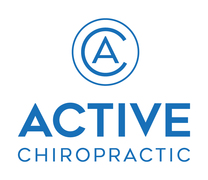First winter flyovers show ‘generally good’ compliance

08 June 2021, 6:08 PM
 No obvious breaches were identified from the air, but a few high-risk areas will be followed up in the coming weeks.
No obvious breaches were identified from the air, but a few high-risk areas will be followed up in the coming weeks.The Otago Regional Council (ORC) compliance team observed generally good compliance with national and regional rules during the first set of winter flyovers in late May, although some high-risk areas were also identified.
ORC compliance manager Tami Sargeant said industry groups had helped to educate and encourage good management practices in the farming community.
“We’re working alongside groups like Dairy NZ, Beef + Lamb NZ, Deer NZ, Fonterra and Federated Farmers to support farmers with the information and advice they need to manage their farm with minimal risk to the environment. We’re all keen to encourage the progress we’ve seen in grazing preparation ahead of this winter.”
Some common potential risk areas for winter grazing were also identified in the Central Otago flight. These included surface water ponding in flat terrain which could mobilise sediment in heavy rainfall events, unfenced waterways or waterways without buffers, and some steep paddocks.
Advice on good practice has been issued which includes keeping clear of critical source areas, block feeding and grazing from the top of a slope to the bottom.
Tami said it was important that risk areas were still managed appropriately.
“There are a few high-risk areas where ORC staff will follow up on the ground to make sure good management practices are being followed and to ensure compliance with our rules. These include things like crops being planted in critical source areas – where there is a risk of sediment flowing into waterways – and a few buffer zones near waterways that were narrower than we’d like” she said.
Another round of compliance flights will take place towards the end of June.
Federated Farmers has an early intervention programme which means people can raise concerns about winter grazing anonymously through Federated Farmers’ Early Intervention programme, by calling 0800 FARMING (0800 327 646).
Anyone needing advice about environmental farming practices can contact the ORC rural liaison team on 0800 474 082 or email [email protected]; and anyone who sees pollution of a waterway is encouraged to call our 24/7 pollution hotline on 0800 800 033.
PHOTO: Supplied





